As modern businesses become more tech-savvy, the science of office design constantly keeps up to navigate different modes of working – be it remote, hybrid, or in-person. The post-pandemic work landscape is seeing corporate offices and work-from-home professionals push for healthier and more functional workspaces. This is where smart furniture comes in: a new wave of furniture outfitted with cutting-edge technology and designed to enhance user experience and functionality.
What Makes Smart Furniture “Smart”
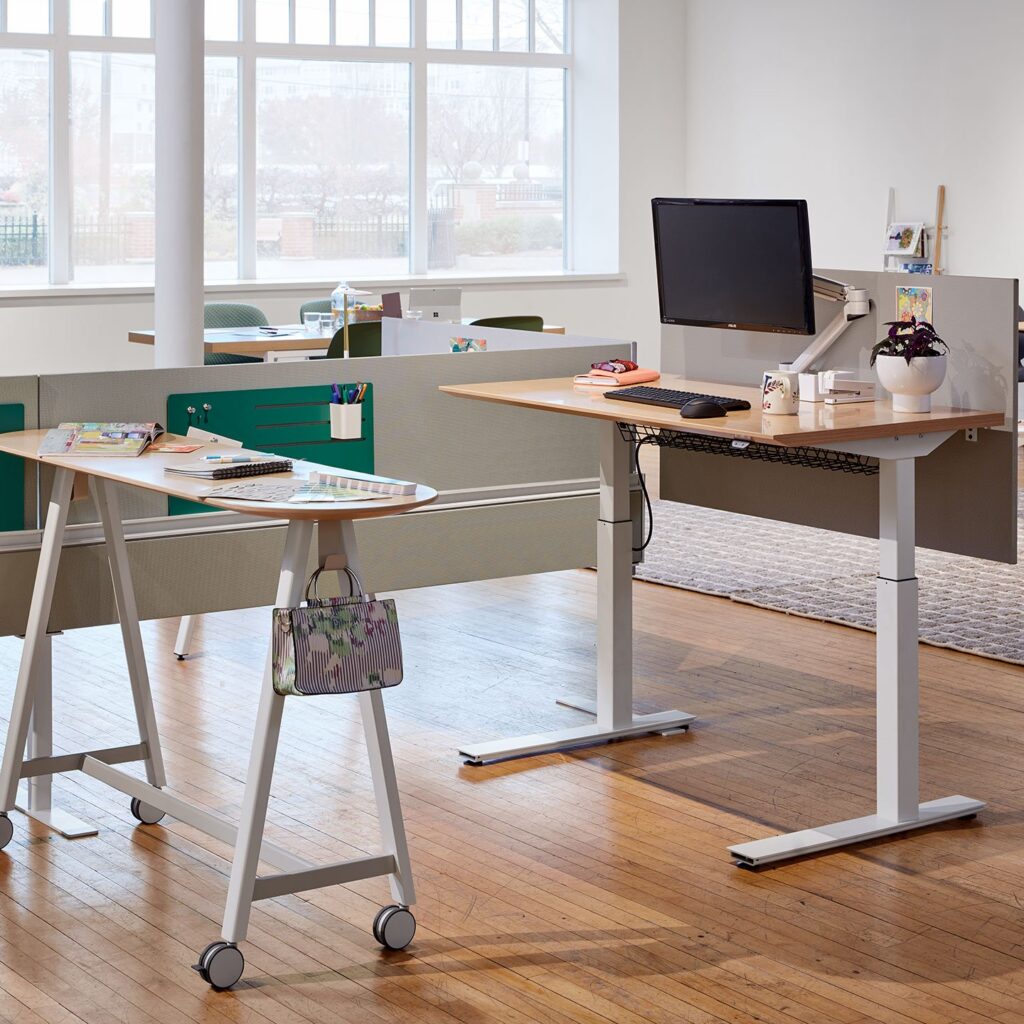
Adjustable desks are now staples in offices across the globe – and all for a good reason. These intelligent tools are helming the concept of health-first design while effectively keeping up with evolving work habits. Other smart furniture – collaboration tables, modular seating, and sound-proof pods, to name a few – are emerging as the future of office design for several key reasons:
- Focus on wellness. Perhaps the most sought-after benefit of smart furniture is its ability to ward off sedentary catastrophes associated with prolonged sitting, such as back pain and heart problems.
- Space optimization: Modular furniture allows better office space management and more flexibility to suit specific work conditions and needs.
- Customization: Options for storage, organization, and adjustable lighting or temperature directly impact comfort and reduce strain while working.
- Connectivity and integration: Smart furniture built with wireless connectivity or virtual assistants can communicate with other devices in digital ecosystems, allowing for a more integrated setup.
- Sustainability: Smart furniture equipped with energy-saving features, such as integrated charging ports and automatic power adjustments, supports sustainable and cost-effective workspaces.
Smart Furniture Innovation from Haworth
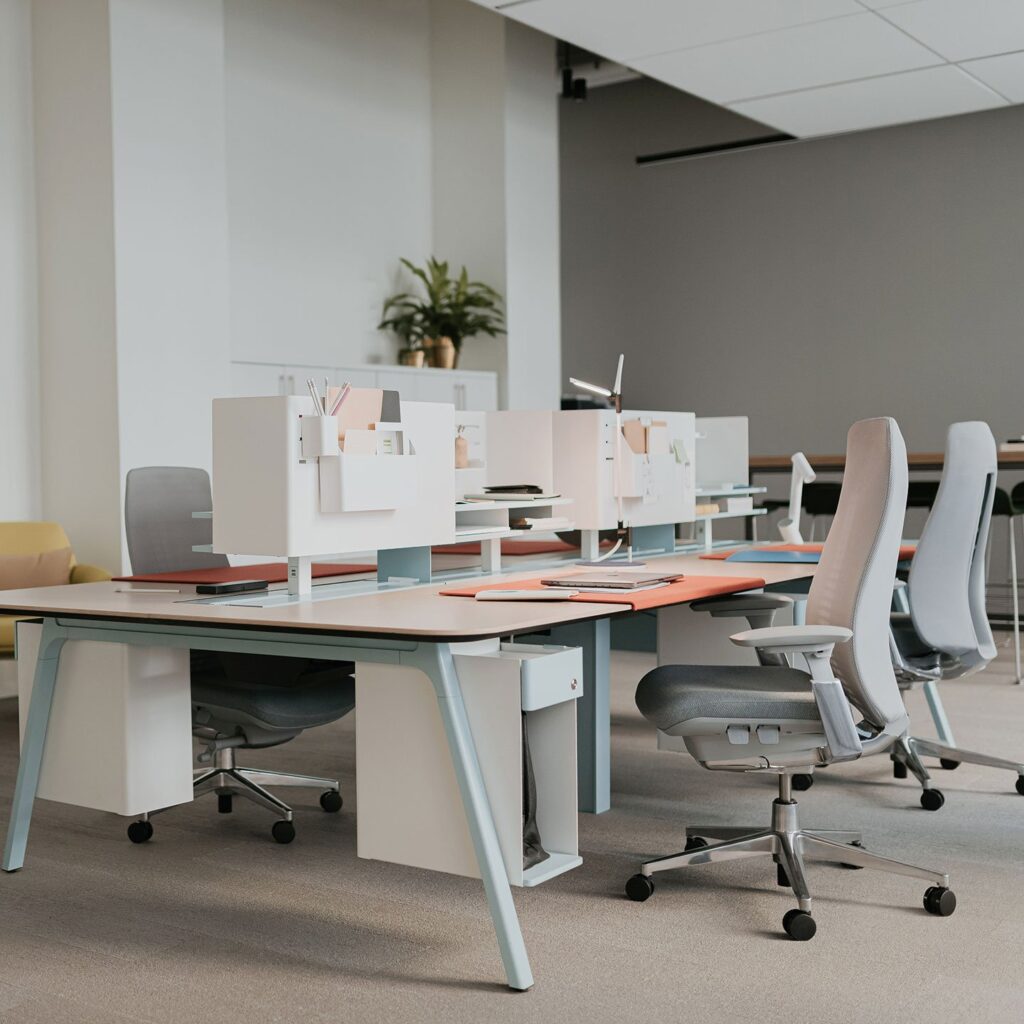
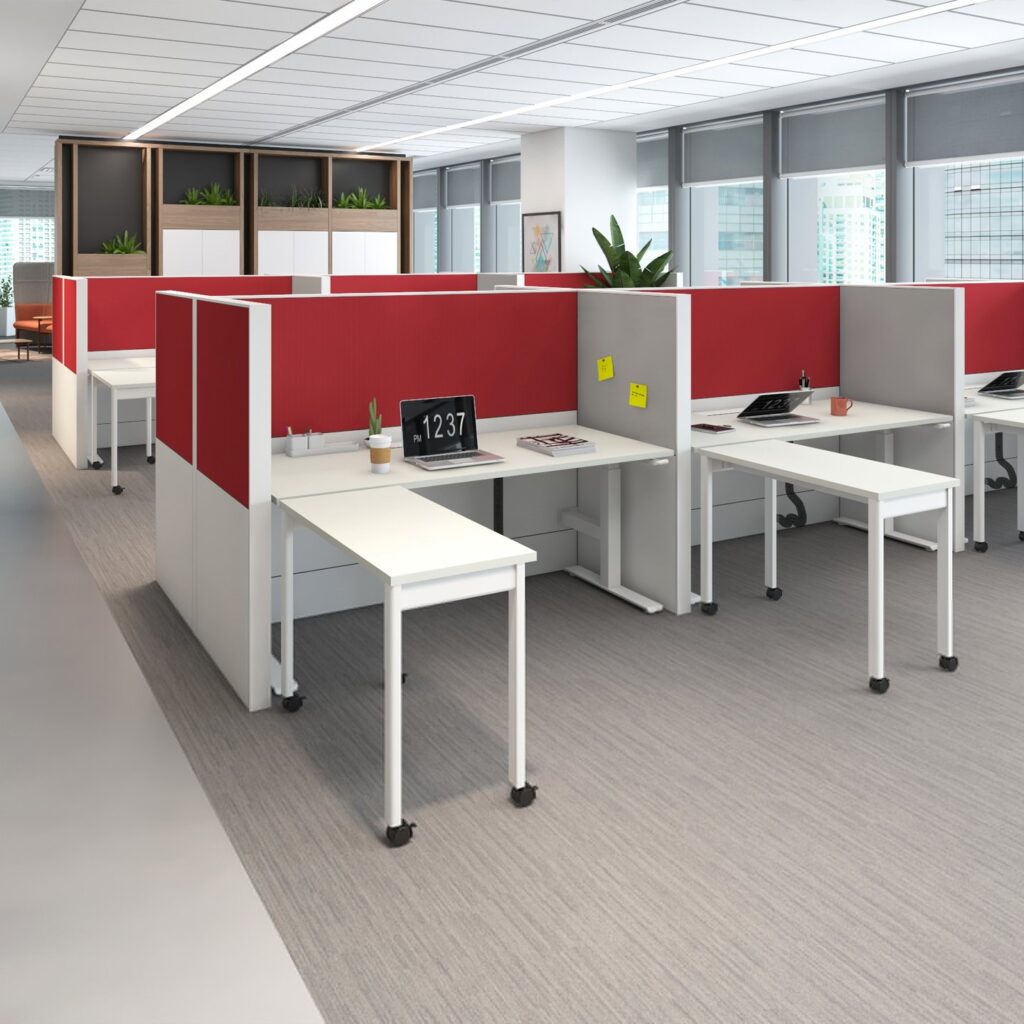
Several innovative furniture pieces from Haworth exemplify how technology and design are converging in the modern office. The Intuity and Xone desks, for instance, provide flexible workstations for easier collaboration, while the Fern conference chair offers ergonomic support during long work hours.
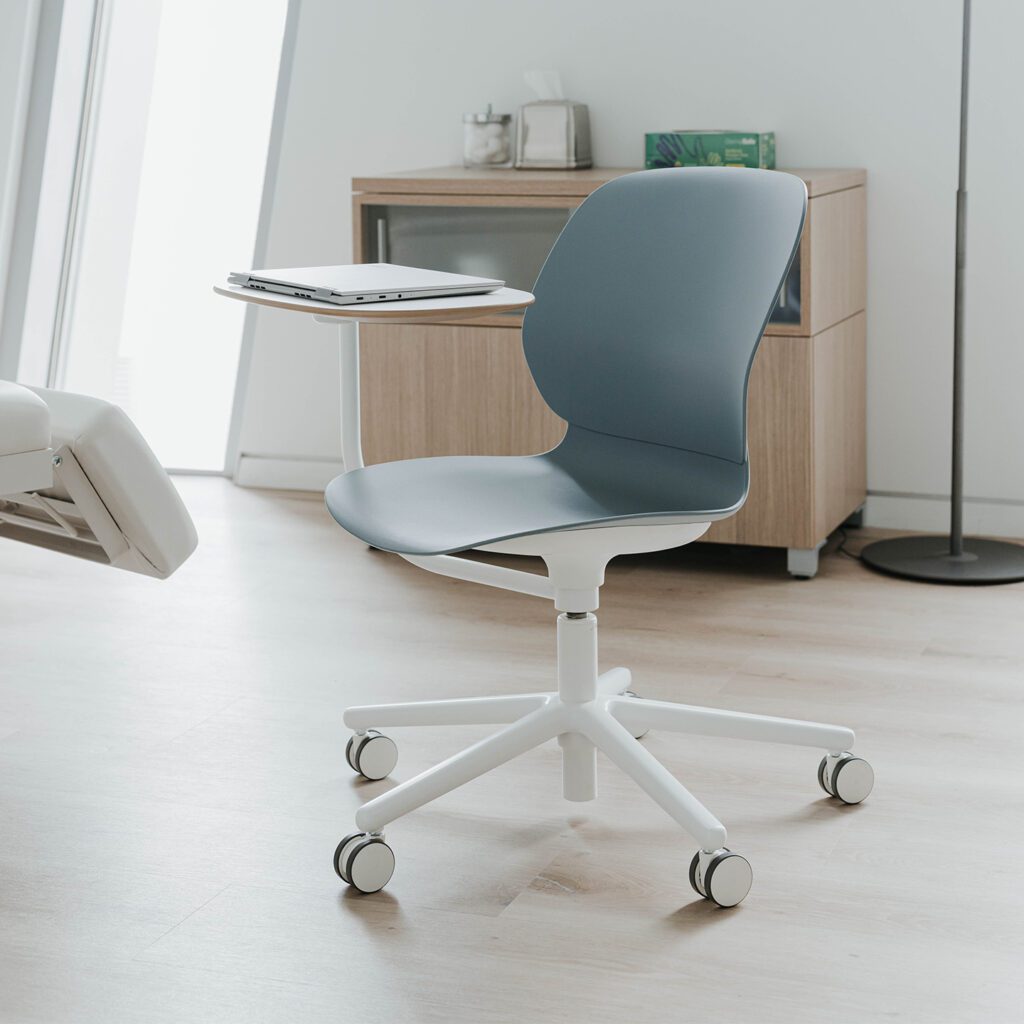
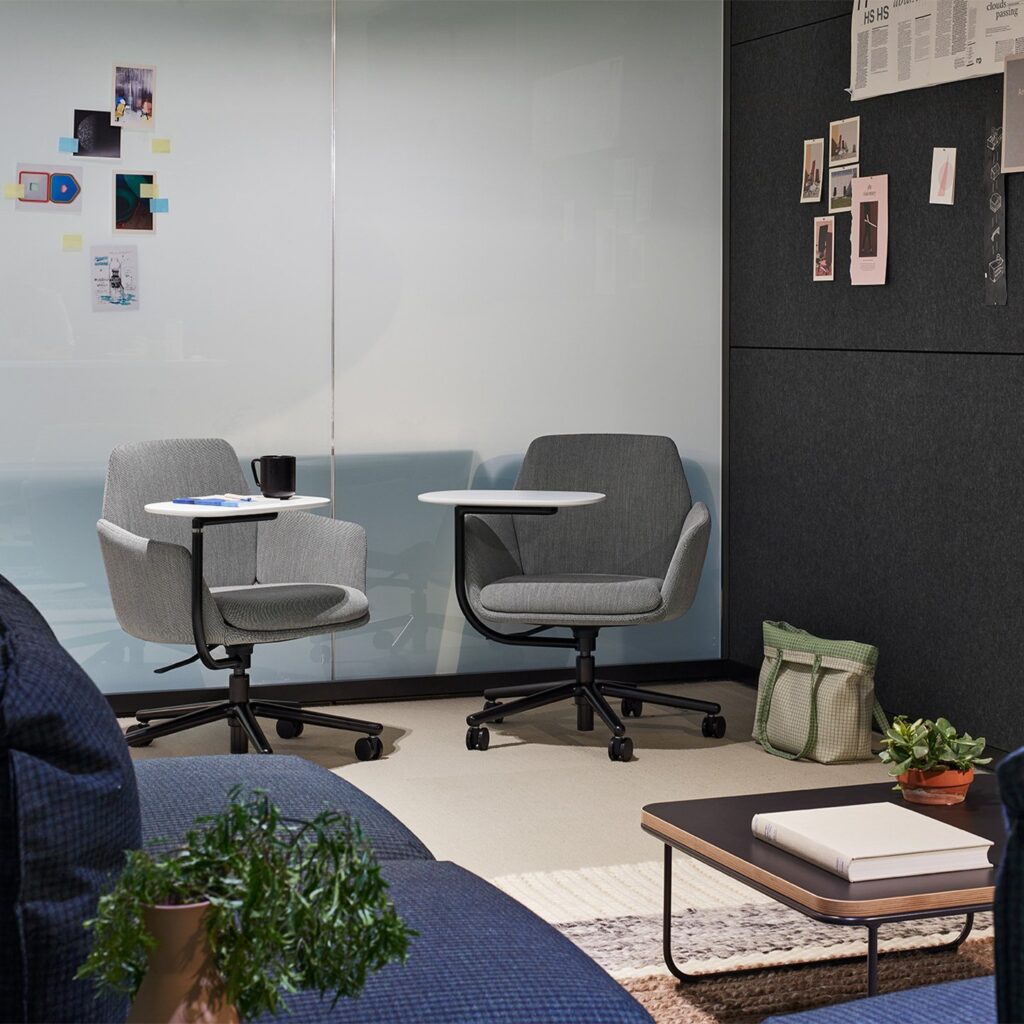
Additionally, the Maari and Poppy chairs come with a tablet that makes it easier to switch from office desks to lounge seats, making them ideal for both formal meetings and casual discussions. These smart furniture solutions reflect Haworth’s commitment to creating wellness- and function-focused office environments.
Future-Proofing Office Design
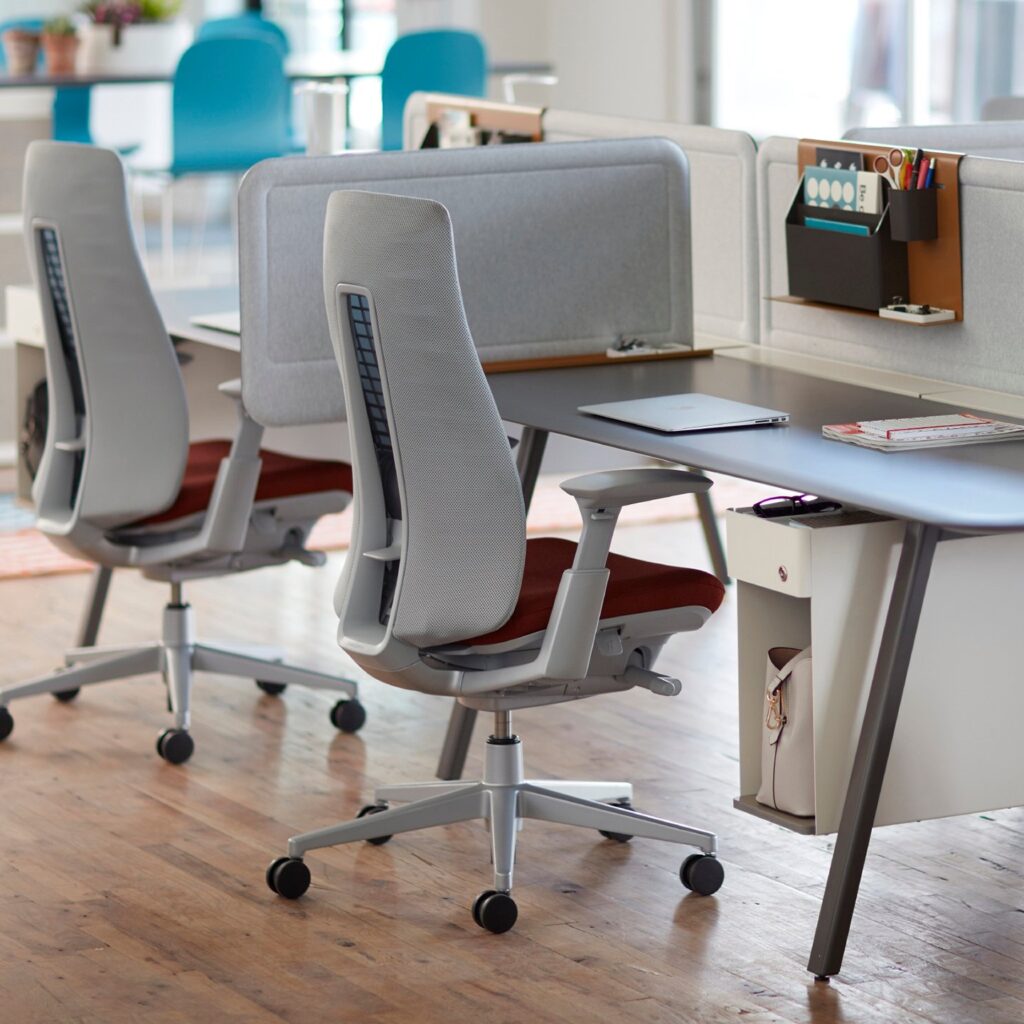
Recent industry reports have seen steady growth in the smart furniture market since 2020, and it doesn’t show signs of slowing down. As more companies and professionals embrace smart furniture solutions, we can expect to see more advanced and innovative features, such as:
- Data and performance tracking: We may see smart furniture that can monitor activities and provide users with insights into their work habits.
- AI learning: Smart furniture may start to adapt to individual user habits over time, such as a standing desk that automatically elevates based on usual standing schedules.
- Recyclability: A lot of manufacturers have started to build furniture out of sustainable resources and use energy-efficient technology, and we may see more of it in the future.
Final Notes
The rise of smart furniture is more than just a trend of ergonomic and aesthetic office pieces – it marks a new era of creating healthier, more productive, and more efficient workplaces. Ready to transform your workspace? Reach out to Three Rivers Business Interiors today and discover how smart furniture can elevate your office design.

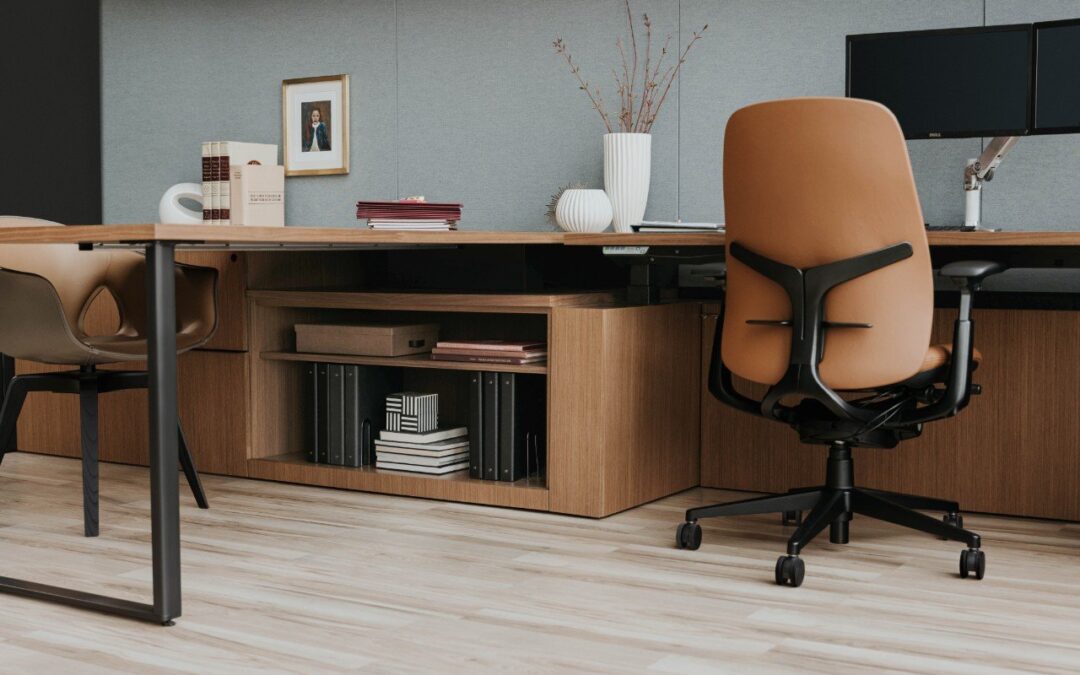
Recent Comments